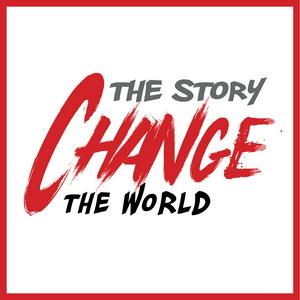Change the Story Weather Report: A Neighborhood Cultural Center Navigates the MAGA Storm
The MAGA storm system continues to exert a profound influence on community members, activist artists and cultural organizers living and working in Minneapolis' Powderhorn Central Community. Bill Cleveland's dialogue with Noel Raymond reveals the complexities of navigating activism amidst the destabilizing forces fast moving Trumpian juggernaut. Raymond describes the fraught material emotional landscape faced by artists and cultural organizers, characterized by feelings of fear, rage, and disorientation. Takeaways:Understand why the disorientation that we're all experiencing is used as a tactic to prevent resistance, and that recognizing this helps us stay grounded.Find out how an organization like Pillsbury House, uses the practice of sanctuary is a means of both safety and. And strategy.Learn how creating spaces of safety and joy and cultural expression can be a powerful form of defiance and that the communities stories, whether they're in small circles or on stage, are a lifeline.Other Key Points:And when people tell their truths without mediation, they build solidarity and power and the possibility of change.The discussion emphasizes the critical need for community support and the importance of creating safe spaces for artistic expression. Through the lens of Pillsbury House's mission, the conversation underscores the power of storytelling as a tool for resistance and empowerment. Raymond's insights into the organization's efforts to center marginalized voices, particularly during moments of heightened tension, illuminate the intersection of art and activism. As the episode unfolds, listeners are encouraged to reflect on their roles within their communities and the ways in which they can contribute to building solidarity and resilience in the face of adversity. Ultimately, this episode serves as both a poignant commentary on the challenges of the present and an inspiring call to action for those seeking to effect meaningful change.Change the Story GoFundMe CampaignNotable MentionsIn this episode, host Bill Cleveland sits down with Noel Raymond of Pillsbury House + Theatre to explore how artists and cultural organizers are navigating political backlash, erasure, and community survival in the heart of Minneapolis. Below is a curated list of the people, organizations, events, and references that came up during their powerful conversation. People Bill Cleveland: Host of Change the Story / Change the World and Director of the Center for the Study of Art and Community.Noel Raymond: Senior Director of Narrative Arts and Culture at Pillsbury House + Theatre, leading narrative strategy and performance-based organizing.Mike Hoyt: Artist and cultural organizer at Pillsbury House + Theatre, noted for his community work and collaboration with Noel.Judy Munsen: Composer of the podcast’s original theme and soundscape.Events & Social MovementsTrans Day of Visibility: Annual event on March 31 to honor and raise awareness for the transgender community.
